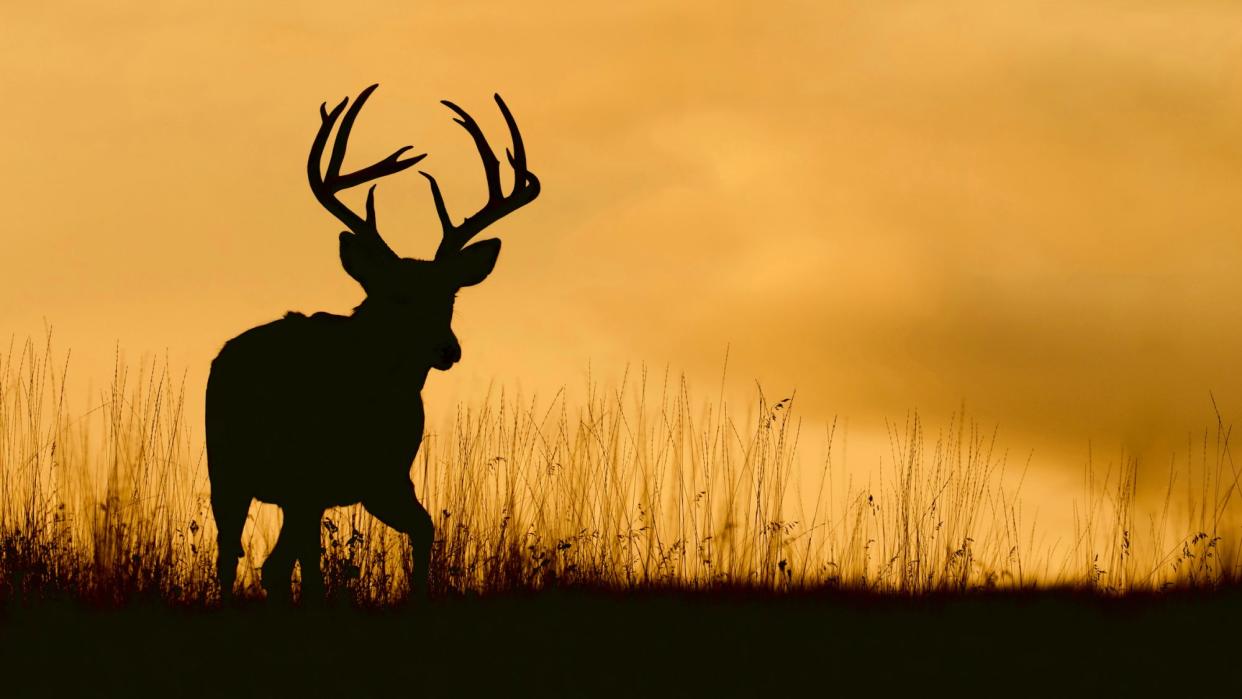13 Ways to Help Create a Better Future for Wildlife Management

Who is responsible for managing wildlife in America? Is it hunters and anglers who buy fishing and hunting licenses and are the main beneficiaries of traditional wildlife management? Or is it citizens who value a butterfly or bluebird on equal standing with a rainbow trout or trophy bighorn ram?
That’s the central question of a four-part mini podcast series hosted by Hunt Talk Radio's Randy Newberg and myself. The fourth and final episode is available here.
In case you missed the earlier episodes, the context for the discussion is the change currently underway in Washington, Oregon, and Colorado, where non-hunters and animal welfare activists are being appointed to wildlife agencies and changing priorities that have previously been driven by hunters and anglers.
Read Next: Here’s Why Hunters Need Help from Birders, Backpackers, and Dog-Walkers
It’s a fairly predictable trajectory, as America’s demography becomes more urban and culturally diverse. So, what are hunters and anglers to both know and do about this? That was the task of our far-ranging conversation.
In this final episode, we outline a number of action items that can be used to ensure that more species are conserved, more landscapes are prioritized for wildlife and wildlife recreation, and more people are involved in wildlife management in America.
https://embed.podcasts.apple.com/us/podcast/the-greatest-threat-to-hunting-and-hunters-part-4-of-4/id1012713381?i=1000636663062
What are those tools? Some of them are abstract and squishy. Others are very precise and prescriptive. In no certain order, here they are.
Hold wildlife trustees accountable. Constituents must require commissioners to meet regularly in an open, transparent meeting.
Reduce patronage influence in commission appointments. Resist the appointment of commissioners who represent narrow special interests, especially interests that conflict with sustainable wildlife and wildlife habitat.
Participate. Our wildlife rules and regulations are products of public participation. If you don’t show up and contribute to the process, you lose standing in the ultimate decision. As Newberg says, “Everybody has to have their shoulder to the wheel. Whether you want to lead from the front of the parade or the back of the parade, it doesn’t matter. Just get in the parade.”
Know the rules and require adherence to them. In Washington, gubernatorial commission appointments were not confirmed by the legislature for at least a full session. But hunters and anglers didn’t demand that the legislature conform to constitutional requirements.
Hunters and anglers need to recognize national change in wildlife values. Big antlers and non-native, hatchery-reared fish are increasingly devalued by many Americans. Instead, non-game species conservation and habitat protection is rising as a public value. Vocally requiring commissions and agencies to manage to a fading value system is a recipe for failure.
Everybody who hunts and fishes is an ambassador for hunting and fishing. These traditions—and the social credibility that sustains them—are more likely to be lost by bad behavior on our part than an attack by someone outside our community.
Become a more sophisticated communicator. We know the messages that work from the strategic communication industry. If we want to create more public support for fishing and hunting, we need to talk about ecosystem benefits of these practices—clean water and healthy watersheds, organic meat and healthy lands, rural traditions, and self-sufficiency.
Support diverse messengers. We need to empower young, diverse, authentic voices to carry the message that hunting and fishing is conservation.
Support professional wildlife management. It’s become sporting in our community to throw shade and derision at biologists and agencies. Listen to the proposals presented by professional wildlife managers, understand the underlying rationale, and if you agree with it, actively support it. You can’t say you support science-based management if you don’t support the scientists.
Support national hunter-advocacy groups. We have a few vocal groups, including the Sportsmen’s Alliance and Safari Club International. But are they big enough? Are they non-partisan enough to build a broad coalition?
Enlarge our conservation community. We can’t meet the daunting conservation challenges of the future—as climate change alters habitats, as human development intrudes into wildlands, and as clean water, air, and forests are all being stressed—alone as a community of hunters and anglers. We need to engage with people who share our goals: healthy landscapes, sustainable wildlife populations, open space, healthy human communities. This is what the national relevancy discussion is all about.
Project our track record of conservation success into the future. American hunters and anglers rightly congratulate ourselves for restoring wildlife species, but we need to apply the model of science-based wildlife management to all species, not just the ones we hunt and fish.
Be open to change. As long as we don’t treat our wildlife commissions and agencies as an exclusive club, where only those who think and look like us are welcome, we can help guide change well into the future. We need to tell our conservation success stories widely and well while welcoming stories and support from non-traditional communities and perspectives. As Newberg said, this is abundance thinking. We can’t continue to demand a bigger slice of the pie. Instead, “we need to demand a bigger pie.”

